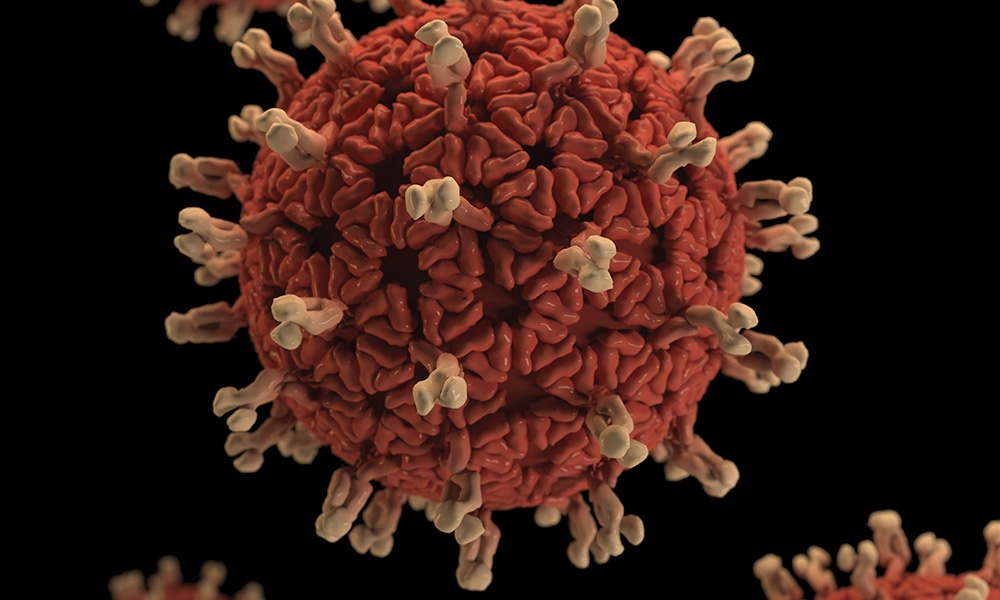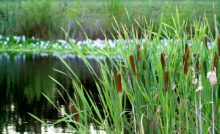Virus – so Far Anyway – Not Affecting Superintendents


COVID Virus
The novel coronavirus outbreak that’s sweeping the world and forcing closures of public spaces, athletic events and many other activities has not yet seriously affected the work of golf course superintendents.
The key words, though, are “not yet.”
Steve Kealy, the superintendent at Glendale Country Club in Bellevue, Wash., said: “There has been no effect on our day-to-day maintenance of the golf course. Yet.”
Kealy’s golf course is just a few miles south of the Life Care Center of Kirkland, a senior-living facility that is considered the “epicenter” of the U.S. pandemic. As of March 15, 29 deaths from COVID-19 – the disease caused by the novel coronavirus – had been associated with the group home. Life Care also said that 30 of the 43 remaining residents, and 46 of its 180 employees, have tested positive.
In Washington State alone, more than 1,000 people have tested positive for COVID-19 and, as of March 17, 55 have died. There are emerging concerns that emergency-department and other medical personnel who treat stricken patients are getting sick. A doctor in his 40s at Evergreen Health Kirkland was diagnosed with COVID-19 and is in critical condition. Another health care worker who tested positive said it felt “like 10 different flus combined, hitting your body.” State officials are bracing for an “onslaught” of new cases.
Nationwide, restaurants, bars, clubs and virtually all public facilities and major events – including pro golf tournaments – have been shut down. Millions of Americans are in self-quarantine. But golfers are still making their rounds.
Some doctors have even approved of the sport. “You’re not in contact with a whole lot of other people. It’s not like basketball where you’re touching and very close to other players, so you could maintain several feet of distance between people (on a golf course),” Dr. Catherine Troisi, an infectious disease epidemiologist at the University of Texas Health Science Center in Houston told GolfDigest.com.
But Dr. Troisi added: “With the caveat that there’s a lot about this virus we still don’t know. It is a kind of virus that has an envelope, which means that it’s more easily killed than some other viruses. Sunlight and other environmental conditions can kill viruses like this, so it is probable that that is true for this novel coronavirus, as well. So, I would say, in the actual playing of golf, you’re not at much risk.”
Still, golfers need to follow the one precaution every other person on the planet must take to prevent transmission of the coronavirus: social distancing, the term that encourages people to keep away from each other.
“As much as we know anything, for now, we know that if you’re more than 6 feet from somebody, they’re not going to spread it to you. So even within your foursome, you just stay a little bit farther away than you might ordinarily,” Dr. Troisi suggested.
Kealy is using such guidelines for his maintenance crew. And more. He’s taken measures “to minimize risk of potential exposure between employees – maintain social distancing of at least 6 feet at all times. No congregating in the break room or dressing areas. Reminder to frequently wash hands and stay home if you are not feeling well.”
Because of the uncertain long-term financial ramifications of the virus, Kealy and other superintendents are keeping a close eye on expenses. Glendale, like many private clubs, has temporarily shuttered its food and beverage operations as well as workout areas and swimming pools, unsure of how this will all play out.
“We have reviewed the golf course budget through June and are not purchasing any items that are not needed right now,” said Kealy, who was instrumental in bringing the innovative First Green program to the Golf Course Superintendents Association and the Environmental Institute for Golf.
“Cups, flagsticks, flags, etc., will not be purchased until after June. If one of our staff or someone in their family gets the virus, we are all going to be affected by a possible quarantine. But there are no contingency plans, yet.”
Marcus Harness, superintendent at Sand Point Country Club in Seattle and situated on the west side of Lake Washington across from Kirkland, has seen some ominous signs. “Our operation is established on a solid foundation of repetition and routine practices,” said Harness. “Our staff usually knows what to expect each day, but the virus has instilled a strong sense of fear and unknown. The intense focus has been shifted toward employee health and safety and many precautionary measures have been set in place. We have implemented social isolation and encouraged responsible self-care to ensure a safe workplace and promote staff well-being. This has caused many people to stay home from work and reduced production on the golf course.”
When asked what measures he’s taken to ensure that his crew is healthy, Harness said: “In addition to encouraging staff to remain at home when they are not feeling well, we have given heightened attention to facility sanitation and cleanliness. Club-provided meals have switched from buffet-style to individually packaged. Safety precautions and concerns are addressed daily during morning meetings. The ultimate objective is for the staff to feel supported during these difficult times. The club has been progressively evaluating paid-time-off policies so that employees can comfortably prioritize self-care over their need to generate income.”
Like everyone else, Harness is unsure what looms down the road. “At this point it is difficult to predict future issues that will arise. The larger-scale social and economic impacts of the virus will ultimately have a trickle-down effect to our club. We need to prepare to be as resourceful as possible.”
Sean McDonough, superintendent at Broadmoor Golf Club in Seattle, is evaluating the worst-case scenarios. “At this point, we are planning/preparing for a complete shutdown of operations and how we would keep the golf course in decent condition with that. At this point, formulating a solid plan is tough and hopefully, we don’t have to use it. We will be ready for any situation.”
On March 20, the GCSAA announced that many employees would work remotely, and its headquarters in Lawrence, Kan., would be closed to the public. The association promised, however, there would be little or no service disruption to members as it had planned for such a situation.
“We are very fortunate that we invested in the technology to be able to continue to provide the high level of member service we are known for while keeping the health and safety of our members and staff at the forefront,” GCSAA CEO Rhett Evans said. “We will continue to monitor the situation to determine when we feel it is safe to return to our traditional operation.”
Jeff Shelley has written and published nine books as well as numerous articles for print and online media over his lengthy career. Among his titles are three editions of the book, “Golf Courses of the Pacific Northwest.” The Seattle resident was the editorial director of Cybergolf.com from 2000-15. For seven years he served as the board president of First Green, an educational outreach program that is now part of the Golf Course Superintendents of America and Environmental Institute for Golf.
Read other in Jeff’s Series of Making the Rounds – https://www.golfcoursetrades.com/author/jshelley/
Recent Posts
Escondido Golf and Lake Club: A Texas Golfing Treasure that Sets the Standard for Course Maintenance
When you think of a top-tier golf course, several factors come to mind: a stunning…
GCSAA names Joshua Tapp director of environmental programs
Former EPA Region 7 acting deputy regional administrator will provide strategic direction for environmental initiatives…
Circling Raven Golf Club Set to Open April 4; Coeur d’Alene Casino Amenity Unveils New Programs, Enhancements
Coeur d’Alene Casino Resort Hotel will open Circling Raven Golf Club on April 4 (weather…
Noteefy Expands Luxury Island Resort Portfolio with Additions of Casa de Campo, Fairmont Southampton
Casa de Campo Resort & Villas in the Dominican Republic and the Fairmont Southampton in…
Cattails -The Pond’s Drama Queen
Cattails – you’ve seen them. Tall, fluffy, and taking over ponds like they own the…
Carolinas to Honor Pinehurst’s Farren
Pinehurst’s Bob Farren, CGCS will receive this year’s Distinguished Service Award from the Carolina Golf…


